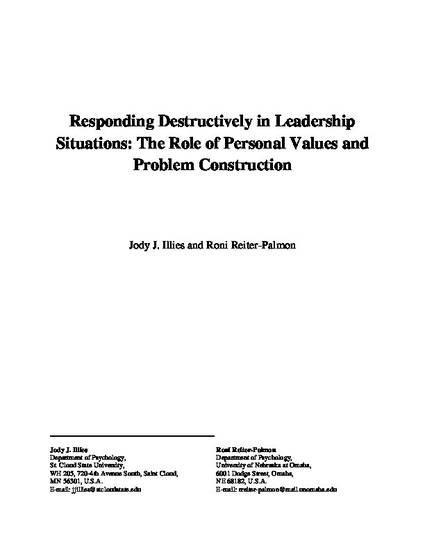
This study explored the influence of personal values on destructive leader behavior. Student participants completed a managerial assessment center that presented them with ambiguous leadership decisions and problems. Destructive behavior was defined as harming organizational members or striving for short-term gains over long-term organizational goals. Results revealed that individuals with self-enhancement values were more destructive than individuals with self-transcendence values were, with the core values of power (self-enhancement) and universalism (self-transcendence) being most influential. Results also showed that individuals defined and structured leadership problems in a manner that reflected their value systems, which in turn affected the problem solutions they generated.
Available at: http://works.bepress.com/roni_reiter-palmon/48/

This is not the version of record for this article. The final publication is available at http://link.springer.com/article/10.1007/s10551-007-9574-2.